
A Standard Missile-3 (SM-3) is launched from the Japan Maritime Self-Defense Force destroyer JS Myoko (DDG 175) in a joint missile defense intercept test with the Missile Defense Agency in the Pacific Ocean (Oct. 28, 2009); U.S. Navy photo Courtesy of the Missile Defense Agency
When Ronald Reagan and Michael Gorbachev talked at the 1986 Reykjavik summit, the American representative said that the aim in the future will be to get the World disposed of the nuclear power. Journal Foreign Affairs published that Reagan’s performance was the dangerous result of “casual utopianism,” “indifferent preparation” and a lack of understanding of strategic “exigencies”.
Two decades later, Henry Kissinger said:
I do not believe we can do this as a demand by countries that have nuclear weapons to countries that do not.
Today — two decades after the Berlin Wall came down — the United States and Russia still have more than 20 000 nuclear weapons, thousands ready to launch within minutes. North Korea might use its nukes to “punish” the southern brothers and Iran is mastering the skills it needs to make its own.
In spotlight of the grand dilemma – are we closer to Fukuyama’s End of History and “victory of Freedom” – therefore no nukes are to be needed? Or is the Huntington’s Clash of Civilizations near future of the mankind? I assume we all found out after 9/11/01, that “the victory of Freedom” theory has experienced a major setback.
The decay of the only real superpower from the early years of the new century and the exchange of roles between Russia and China as the counterpart of the USA, has been considered the difference between the world of 1986, post-1990 and 2010.
Three levels of “the” solution
The first level of pondering outlined question: tension between USA and its counterpart on the world’s chessboard. After the ongoing final ratification of the new START and the NATO Lisbon summit in November 2010 it turned to be official that Russia has given up on the superpower role. Since the G-20, EU and UN do not make geostrategic decisions any more (or yet), everything weights on the shoulders of the G-2: Washington – Beijing.
New bilateral “game” is to be played between the two biggest geostrategic players. According to Fareed Zakaria – the liberal democracy will “probably” arrive in China within next decades. Since Uncle Sam’s Land desires to keep the world turning the democratic (e. q. liberal) way, in the meantime – till the Chinese reach the “full” democracy (what might never happen),it is natural to keep the power which is able to defend the values of such a world so – keep the N-weapons.
On the other hand, China has no interest in losing the nuclear position, especially in contrast with weak Russia, strengthening South Korea (recalling the 1953 Chinese march to Seoul) and economically strong Nippon. Clear answer is – there is no way any of those sides could voluntarily get rid of nuclear weapons. (Although, they might find a compromise on new “Chinese” START, which would make the next US president more “likeable” for the EU-US demos.) Need of having the Mutual Assured Destruction button will remain for next several decades on both sides, till the détenete will be brought up when the globalized need for resources will not be fought for, but negotiated. (Which is just an idealistic idea, more probably the WW III for resources is before the door of presence.)
The second level of insights on N-weapons is: Familiar “NATO-USA and Friends” (South Korea, Saudi Arabia and Japan) on one side, the “evil” states on the other one. Speaking of the local disputes – the Korean conflict and Iran controversy over the nuclear program bring the overpowering need to another perspective.
These smaller countries cannot compete with the NATO states in terms of conventional armies, therefore they would literally like to be able to use the Herman Kahn’s megadeath (term coined in 1953 by Herman Kahn to describe one million deaths) as a very negative PR move for the democratic countries dependant on the will of their demos. The idea of strong bilateral damage stemming from the unexpected use of nuclear power is far too sexy so there is no way of locking the use of it by signing papers. “Evil” states will do their best to get the N weapons and use them if they cannot be “heard” – the same pattern as for the fundamentalists.
As a consequence, the “NATO and Company” countries have to have a counter strike-ability of the same volume – the need of being able to destroy Pyongyang/Teheran or depositing the whole North Korean divisions within seconds have to be the difference-maker. In addition, it is significant to know that only Turkey and the USA have really strong conventional forces which protect the Western civilization from our-vales-threatening “evil” states. So, yes, the NATO states must keep their arsenal for reciprocity purposes.
The need of nuclear insurance from the vintage point of small states with enemies all over the boarders (regardless on their religious or political orientation) is greatly illustrated by Israel. A “post-holocaust mandatory friend of all countries” has not officially admitted possession of N-weapons nevertheless is being silently tolerated by the “only good and reliable friend of Jews” – the USA.
The third level of the issue is the sphere of states against individuals/groups. Mostly regarding the Muslim fundamentalists – it is slightly irrelevant, whether the state operates with nuclear arsenal. In the struggle against terrorists, no weapons of mass destruction are needed. It is not a surprise that this “relationship” is reversed – the terrorist group owning a nuclear weapon is highly expanding the weight of its mandate for a power-based negotiation, known also as blackmailing. To answer, there is no need and no use for the state to use the nuclear weapons against individuals/groups.
Conclusion
Although the 1970 Treaty on the Non-Proliferation of Nuclear Weapons came to power, there is no way to stop spreading out of the nuclear-prone material. Moreover, since the weapons of mass destruction are not that hard to get, leading states should not be so keen on getting rid of them.
To sum up the up-mentioned sub-conclusions, the Nuclear weapons are needed in this world. Nevertheless, in the light of nuclear megadeaths and Mutual Assured Destruction acts, there is a strong point in getting the nuclear strategic power under mutual control of the democratic states.
To answer the question – world without nuclear weapons is an utopia.
1 comment
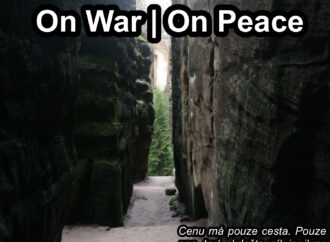
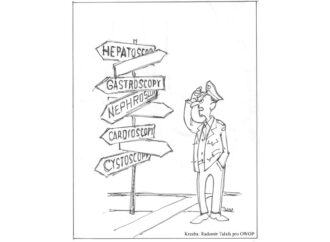



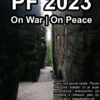
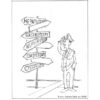
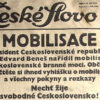

1 Comment
Dušan Rovenský
29. 1. 2011, 17:56I would like to quote these two gentlemen:
If men can develop weapons that are so terrifying as to make the thought of global war include almost a sentence for suicide, you would think that man’s intelligence and his comprehension… would include also his ability to find a peaceful solution. (Dwight D. Eisenhower)
and
I know not with what weapons World War III will be fought, but World War IV will be fought with sticks and stones. (Albert Einstein)
I guess that is single most important reason, why Cold War never turned into World War III – the fear of mutual assured destruction (MAD). Nuclear weapons didn’t make the world a less safe place – actually they made it safer than ever before.
REPLY